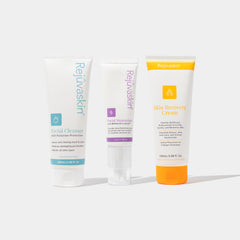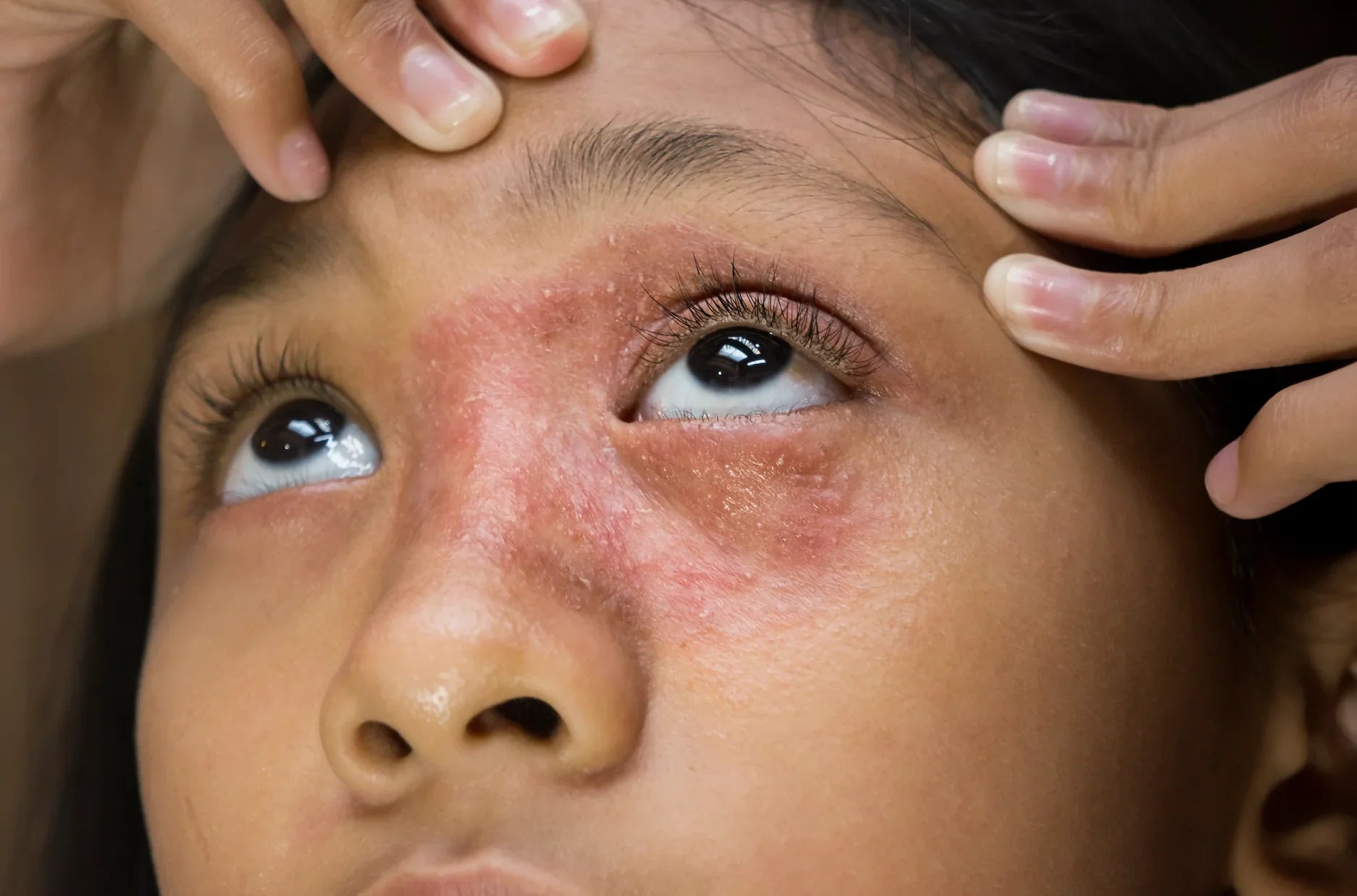Eczema (atopic dermatitis) is a chronic inflammatory skin condition marked by dry, itchy, and irritated skin. Although it has no cure, there are evidence-based steps you can take to manage symptoms and reduce flare-ups. Below are 8 scientifically supported eczema management tips you can apply today.
1. Moisturize Daily – And Choose the Right One
Consistent moisturizing is essential for maintaining your skin barrier, which is often compromised in people with eczema. Emollients and creams reduce water loss, soothe itch, and can cut the need for steroid creams by up to 50% (Greener, 2009). Advanced moisturizers with humectants and lipids help restore skin integrity and prevent flare-ups (Lóden, 2014).
2. Eliminate Fragrances & Harsh Detergents
Fragrances in soaps, lotions, or detergents can act as irritants, exacerbating eczema symptoms. Opt for fragrance-free and dye-free personal care and laundry products (Langan, 2009).
3. Identify & Avoid Personal Triggers
Eczema triggers vary between individuals and can include allergens (e.g., nickel, dust mites), certain fabrics, or even shampoo. Studies confirm that avoiding specific irritants—especially in colder months—can reduce flare frequency (Langan, 2009).
4. Hydrate from the Inside Out
Staying well-hydrated helps support your skin’s ability to retain moisture. While external moisturizers are critical, internal hydration ensures optimal skin function.
5. Manage Stress Proactively
Stress has been linked to eczema flares through increased inflammatory responses. Techniques like meditation, deep breathing, and yoga can help reduce flare severity by lowering cortisol levels (Raveendran, 2019).
6. Consider Diet Adjustments (If Needed)
While not everyone with eczema has food sensitivities, a subset—especially children—may react to specific allergens like eggs or milk. Elimination diets should only be done with medical supervision (Kelly & Hourihane, 2011).
7. Quit Smoking – It Makes Eczema Worse
Cigarette smoke contributes to skin inflammation and worsens eczema symptoms by impairing barrier function. Quitting can significantly improve your skin health (Greener, 2009).
8. Strengthen the Skin Barrier Early (Especially in Infants)
Research shows that early control of eczema and protecting the skin barrier—especially in infants and young children—may help prevent long-term allergic conditions like asthma and hay fever. Using moisturizers proactively and avoiding skin barrier damage may reduce the risk of future atopic diseases (Groves, 2004)
Eczema Can Be Managed
There’s no cure for eczema, but evidence shows that a holistic, proactive approach—hydration, trigger avoidance, proper product use, and stress management—can drastically reduce outbreaks.
If you're seeking a proven product to help rebuild your skin’s barrier, try our Skin Recovery Cream—formulated with dermatologist-recommended ingredients to soothe and hydrate sensitive skin.
Works Cited
-
Greener, M. (2009). Eczema: what lies beneath? Nurse Prescribing, 7, 438–443. link
-
Lóden, M. (2014). Moisturizers in the Prevention and Treatment of Hand Eczema. link
-
Raveendran, R. (2019). Tips and Tricks for Controlling Eczema. Immunology and Allergy Clinics of North America, 39(4), 521–533. link
-
Langan, S. (2009). Flares in childhood eczema. Skin Therapy Letter, 14(8), 4–5. link
-
Kelly, J. P., & Hourihane, J. (2011). Dietary intervention in eczema. Paediatrics and Child Health, 21, 406–410. link
- Groves, N. (2004). Early eczema control linked to allergies, asthma. Special report. Link





















Leave a comment